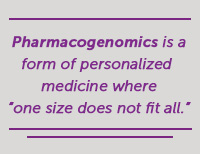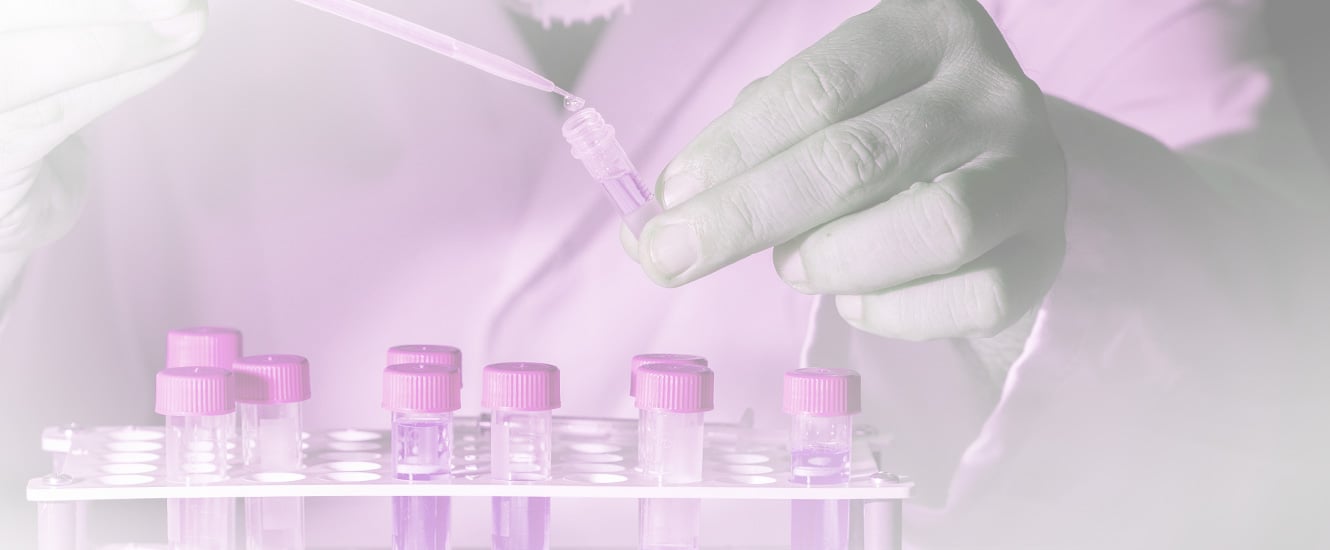Nancy recently had a heart attack. Her Caridologist, Dr. Trish, wants to look over her medications to make sure there are no problems since her discharge from the hospital. Nancy knows about the importance of seeing her doctor after a hospital stay, and she wants to live for a long time so she can she can watch her rambunctious grandchildren, Kevin, Keith, and Mark, grow up. Her three grandchildren keep her very busy and active, so she wants to be able to keep up with them. While Nancy is in the waiting room, she finds a brochure about pharmacogenomics. Nancy is curious and reads up a little bit more while she waits for her doctor. So what is pharmacogenomics? And how does it involve medications?
What is Pharmacogenomics?
Pharmacogenomics is a form of personalized medicine where “one size does not fit all.” By using your personal genetic makeup, it may be possible to see how well you respond to a medication and then make adjustments to your medication regimen as needed. Utilizing this method takes out the guess work where prescribers may try multiple medications before finding one that works best for the patient. While this personalized approach to medicine may shape the way physicians prescribe meds, it can also help determine if any medications a person is currently taking could be switched to something more effective. Now physicians can take into consideration the clinical factor of genetics when selecting a medication.
And the best part? The process is quick! A swab of saliva or prick of blood is sent off to a lab where the sample is sequenced and the results are sent to your physician or other health care provider. Your provider interprets these results and determines what medicine might be the best fit for you. The FDA has compiled a list of medications for which there are pharmacogenomic markers. Some medications that are tested include: cancer drugs, HIV medications, heart disease, depression, chronic pain, and many more. A full list of medications can be viewed here: https://www.fda.gov/Drugs/ScienceResearch/ResearchAreas/Pharmacogenetics/ucm083378.htm.
Nancy also struggles with chronic pain, and she wonders if pharmacogenomic testing can help her doctor determine if the medication she uses is right for her. She brings this brochure in to Dr. Trish to further discuss the possibility of getting tested. It could be possible that Nancy may need to change her medication. Codeine undergoes metabolism by the enzyme CYP2D6 and is converted to morphine in the body. Morphine is the substance that relieves the pain a patient experiences. Nancy may have a mutation in her CYP2D6 enzyme that converts codeine rapidly, slowly, or not at all. The use of Phatesting may help in tailor Nancy’s medications so she can get the optimal dose from her pain medication.
The world of pharmacogenomics is a rapidly growing field of medicine today. Genetic testing has become more accessible and less expensive over time which has allowed for more and more patients to get tested. In the coming years, more discoveries will be made with genetic variants which will allow us to see how many more medications may play a role in metabolism.
ScriptSave WellRx Prescription Savings & Wellness News
Do you need to save money on your IBS, Chronic Pain, Cholesterol or other medications?
Visit www.WellRx.com to compare prices at pharmacies near you.














 Store & manage your medication list
Store & manage your medication list Medication pricing updates
Medication pricing updates Pill & refill reminders
Pill & refill reminders Medication journal & mood log
Medication journal & mood log